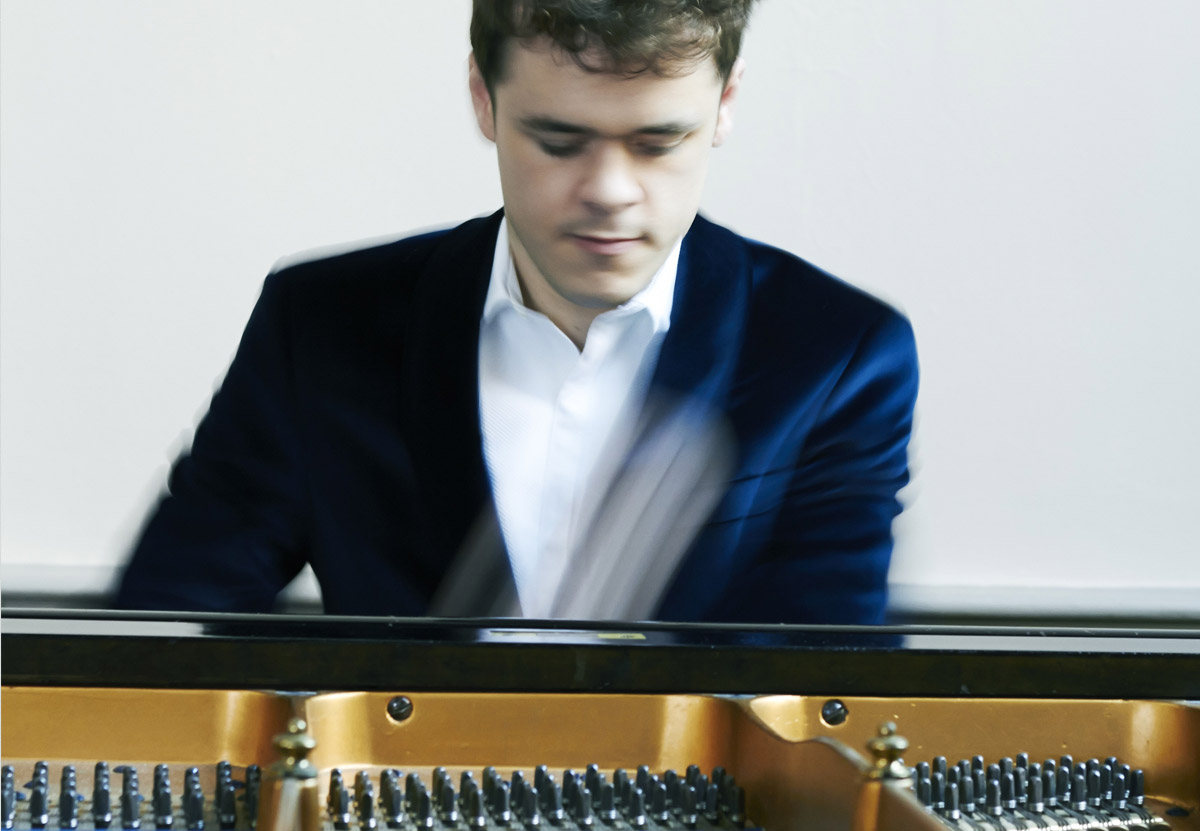
Two great British pianists grace Miami’s music scene in January
Arturo Toscanini and Gustav Mahler, among others, are credited for saying, “There are no bad orchestras, only good or bad conductors.” This statement was borne out on Friday, Jan. 15 at the Wertheim Performing Arts Center at Florida International University, before a large audience that braved traffic, wind and rain to be present. British conductor James Judd, making a rare and most welcome appearance in these parts, challenged the FIU Symphony Orchestra to sound like a professional ensemble. Judd achieved the seemingly impossible after wisely canceling one of two planned concerts because he felt he and the orchestra had been given insufficient time to prepare.
Propped up by guest professionals in key positions, the student orchestra more than made up for the cancellation, delivering a solid, commendable performance. Judd had obviously worked hard, and his passion infused the orchestra with the energy necessary to support Judd’s outstanding countryman, pianist Stephen Hough, in Ludwig van Beethoven’s “Emperor Concerto.” At all times, Hough proved an unconditional and invaluable ally to the conductor, and he lifted the quality of the concert to unexpected levels.
The audience was deprived of Franz Liszt’s Piano Concerto No. 1, but was treated instead to a great performance of Beethoven’s No. 5. Hough displayed precision and deep intelligence in his treatment of every piano intervention, including the first “fortissimo” chord. That beginning heralded the artist’s unconventional approach to the piece, which he adopted after studying the original manuscript. Hough, the first classical artist to receive a MacArthur “Genius” grant (in 2001), is a Renaissance man: a musician, composer, poet, painter, writer and lecturer–skills that were on display for the audience during a post-concert Q&A session with Judd. The two not only saved the evening but made it distinct and even exemplary.

Benjamin Grosvenor. Photo by Decca.
If Hough emerged as a fine representative of English piano-playing, the recital, two days later, of fellow Brit Benjamin Grosvenor (presented, like the Jan. 15 concert, by the Friends of Chamber Music of Miami) spoke of a young citizen of the world. Miami is fortunate to be following so closely the career and development of such a prodigy. This is Grosvenor’s fourth Miami concert since 2011, despite a busy calendar that includes Carnegie Hall and other major venues on the international circuit. His performance left no doubt that he has developed and matured, and that we are in the presence of a great artist.
It is possible that Grosvenor is the greatest pianist of his generation, though what matters more is his poetic style and daring choices in his treatment of the traditional repertoire, aided by fabulous technique that allows him to tackle whatever he wants with amazing naturalness and simplicity. In short, he is a genuine artist with whom one may disagree, but it is nonetheless essential is to hear and absorb what he has to say, as there are few of his caliber.
It was likewise fascinating to see him craft a program that reflects his current interests and allows listeners to judge him on a wide spectrum. Grosvenor handled two preludes and fugues from Felix Mendelssohn’s Opus 35 with exceptional clarity and balance. In his execution, Bach-like austerity prevailed over Mendelssohnian romanticism. They were followed by a very personal, internalized, severe and even sorrowful performance of Chopin’s Piano Sonata No. 2 that was devoid of sentimentalism.
In the second half, Grosvenor revealed an elusive Maurice Ravel piece, “Le Tombeau de Couperin,” illuminating every phrase with the delicacy of a goldsmith, infusing life into a piece that is difficult to grasp and render in its entire scope. Liszt’s three Italian pieces–“Venezia,” “Napoli” and “Tarantella”–afforded him the opportunity to play with exquisite lyricism, full of romantic fervor, accepting the composer’s impossible requirements. His extraordinary fingering should also be noted, as well as the full sound he obtains without sacrificing tonal quality.
Grosvenor played two encores: one of his favorites, Percy Grainger’s arrangement of George Gershwin’s “Love Walked In,” and Ernő Dohnányi’s “Capriccio” Op. 28, a devilishly difficult filigree of sound that Grosvenor dispatched with agility and good taste that befits the musical titan that, in the final analysis, he is.
The next Friends of Chamber Music of Miami concerts are on Feb. 11, 13 and 14, during which the Kalichstein-Laredo-Robinson Trio will perform the Complete Beethoven Piano Trios.
Recent Content
-
Artsarticle ·
-
Artsarticle ·
-
Artsarticle ·
